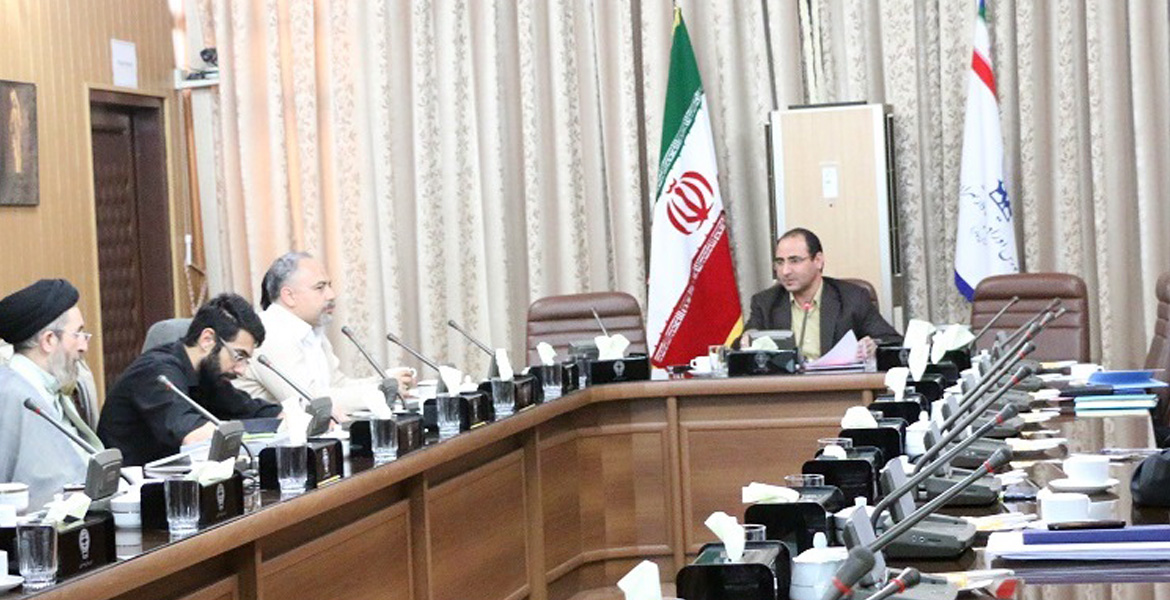
The IAIF held the 10th specialized session on the analysis of Islamic accounting perspective in Iran and the world on 13 Nov. 2016.
Dr. Seyed Ali Hosseini, CEO of Iran Energy Exchange Company and a founding member of the Iranian Association of Islamic Finance, gave a lecture on the history of Islamic accounting, Islamic accounting development, modern Islamic accounting, Islamic accounting versus conventional accounting, Accounting and Auditing Organization for Islamic financial institutions, institutions active in accounting development in Iran, challenges as well as the perspective of Islamic accounting.
He dealt with the realities and history of the accounting system in the world in the framework of the history of Islamic accounting, saying this issue has been widely accepted that the origin of organized accounting that we use it today, has a root in Italy and the father of the new economy, Locapaccioli.
He added the advent of Islam along with the Holy Quran led to the presentation of instructions in relation to various aspects of life, such as economic transactions. In fact, the basis of the Islamic economic system is derived from the Quran itself, which provides examples of how a business can be run in a permissible way. As a result, the creation of an Islamic accounting system was both necessary and inevitable.
As a matter of fact, the Holy Quran provided guidance on how to conduct accounting activities with divine revelation in 610 AD. This means that Islamic accounting existed about 800 years before Paccioli's book. This is not surprising, since the history of accounting has been written by English-speaking writers and their focus has been on private sector accounting in English-speaking countries in the nineteenth and twentieth centuries.
Developed accounting systems and accepted procedures in the Islamic governments can be divided into 7 sections:
Animal accounting (with emphasis on livestock)
Construction accounting
Rice paddy accounting
Warehouse accounting
Coin accounting (foreign exchange accounting)
Accounting for sheep pastures
Treasury Accounting
Hosseini concluded that Islamic accounting in its modern context can be defined as an accounting and auditing process that provides the necessary information to stakeholders and enables them to ensure their business, while pursuing its socio-economic goals, is constantly operating under the supervision of Islamic law and Sharia. Unlike conventional accounting, Islamic accounting deals with a large group of stakeholders (while conventional accounting seeks to benefit a particular group (for example, a single financial institution), so Islamic accounting deals with the interests of society as a whole.
The CEO of the Energy Exchange categorized the collection of financial statements of an Islamic financial institution as follows:
Financial statements reflecting the performance of Islamic Bank in the form of an investor:
A balance sheet
A profit and loss Statement
A cash flow statement
A comprehensive statement of profit and loss or the statement of changes in the share of the owners
The financial statement reflects changes in restricted investments managed by the Islamic Bank and other members of the community benefit it.
The financial statements reflect the role of the Islamic Bank as the trustee of investment funds that operate with the intention of social goals. Such services through separate investment funds give:
A statement of zakat resources and expenditures and charitable funds
A statement of capital resources and expenditures in loan funds.
Other differences can be due to two concepts: Islamic accounting has a religious basis, while conventional accounting is based on secularism. Islamic accounting also operates under Islamic law, which is derived from the Quran and Sharia, but conventional accounting operates under new business laws derived from culture. This basis leads to other differences, one of which is the purposes of providing information.
The main purpose of the Accounting and Auditing Organization for Islamic Financial Institutions (AAOIFI) is to develop Sharia-based standards for international financial institutions related to accounting, auditing, corporate governance, and professional ethics activities. As a result, the organization has published 85 standards so far:
26 Accounting Standards
5 auditing standards
7 corporate governance standards
5 standards of professional ethics
45 Sharia Standards
Regarding the challenges of Islamic accounting, the CEO of the Energy Exchange said that these challenges are divided into 4 different sections:
1- The contemporary experience of Islamic accounting is very little and does not exceed three decades and is still managing itself in order to have a global impact and proves itself as an exploratory approach and offers new proposals.
2- Issues related to evidence, documents and historical documents of Islamic accounting
3- Lack of sufficient knowledge and understanding and the existence of prejudice
4- Issues related to legislation
In the last part of his speech regarding the Islamic accounting perspective, Dr. Hosseini listed the most important issues in this field as follows:
1- Strengthening self-confidence
2- Having a systematic view of Islamic economics and Islamic accounting
3- Developing a theoretical framework
4- Setting accepted principles and rules
5- Publishing the basics of Islamic accounting in different ways
6- Creating formal structures and training human resources
7- Teaching the theory of Islamic accounting principles
8- Teaching how to practice accounting based on Islamic knowledge
9- Legal protection
10- Extraversion


